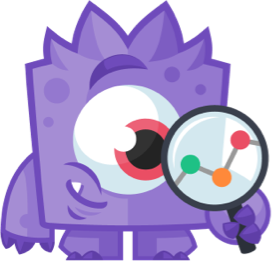In the fast-paced landscape of technology, Artificial Intelligence (AI) has emerged as a driving force, prompting researchers and developers to explore various innovations. One such innovation gaining traction is the AI Operating System (AIOS). This article delves into the architecture of AIOS, the concept of Autonomous Data Management, and the transformative impact these systems are poised to have across various industries.
The emergence of AI as a key player in data management and application processes has sparked a new paradigm in how systems operate. AI Operating Systems (AIOS) stand out as platforms designed to facilitate AI-driven tasks, combining traditional operating system functionalities with the powerful capabilities of AI. The architecture of an AIOS establishes the framework for its core activities, including machine learning processes, data management, and application execution, enabling seamless integration of AI throughout.
AIOS Architecture serves as the backbone for advanced AI functionalities. At its core, the architecture effectively compiles the necessary hardware and software components to optimize performance. More specifically, the architecture typically features several layers. The hardware layer comprises specialized processors suited for AI tasks, such as Graphics Processing Units (GPUs) and Tensor Processing Units (TPUs), which are critical for handling complex algorithms at high speeds. Above it lies the operating system layer, coordinating hardware resources and managing system processes.
From an abstraction perspective, the AIOS architecture is further enhanced by the middleware layer which associates AI capabilities with application development. This layer enables developers to leverage advanced AI features without delving into the complexities of AI model training and maintenance. The final layer includes various applications that utilize AI functionalities, making it easier for users to engage with AI technology.
On the topic of data management, Autonomous Data Management in AIOS represents a breakthrough in how data is processed and utilized. Traditionally, data management involved manual processes that were time-consuming and prone to error. Autonomous Data Management, as integrated into AIOS, automates these processes through self-service data discovery, cleansing, and metadata management. This is made possible by the incorporation of AI algorithms that analyze data patterns and dynamically adjust data strategies.
As organizations generate exponentially growing volumes of data, the ability to manage this data autonomously is crucial. Autonomous Data Management allows businesses to interpret complex data faster and more accurately, leading to informed decision-making. Moreover, such systems can also identify anomalies and optimize data storage by assessing the relevance and performance of existing datasets.
One notable industry application of AIOS is in the field of healthcare. AI-powered operating systems can analyze vast amounts of patient data, facilitating personalized medicine. The AIOS architecture combines data from various sources, including electronic health records (EHRs) and clinical trials, to provide comprehensive insights into patient conditions, treatment responses, and long-term health outcomes. With Autonomous Data Management, healthcare providers can quickly access patient histories and apply AI algorithms to propose optimal treatment plans based on similar cases, thus improving patient outcomes.
In the realm of finance, AIOS drastically reshapes service delivery, investment strategies, and risk management. Financial institutions can deploy AI-powered chatbots to enhance customer service, streamline operations, and reduce costs. With the continuous inflow of market data, Autonomous Data Management ensures that AI systems remain updated and can promptly respond to emerging trends. As a result, whether it’s detecting fraudulent transactions or optimizing investment portfolios, finance industries are increasingly reliant on AIOS to maintain accuracy and efficiency.
Retail is another sector witnessing substantial transformations through the adoption of AIOS. By harnessing autonomous data management, retailers can better understand consumer behavior, personalize shopping experiences, and predict inventory needs. This enables businesses to not only enhance customer satisfaction but also reduce waste and increase efficiency across supply chains. AIOS allows for real-time tracking of customer preferences and sales patterns, meaning retailers can adapt more swiftly to shifting market demands.
Furthermore, the integration of AIOS in manufacturing is set to revolutionize production lines. AI-powered systems can forecast machinery maintenance needs, improving operational reliability and minimizing downtime. As production techniques evolve, Autonomous Data Management allows manufacturers to collect and analyze data across various systems, enhancing quality control and optimizing resource allocation. By merging real-time data with predictive analytics, AIOS empowers manufacturers to meet production goals while maintaining high standards of quality.
Despite the significant advantages offered by AIOS and Autonomous Data Management, several challenges must be addressed. One notable concern revolves around ethical considerations and data privacy. As AI systems manage increasing amounts of sensitive data, ensuring the privacy and security of this information becomes paramount. Organizations must establish robust frameworks that promote ethical AI practices while ensuring compliance with data protection regulations.
Moreover, the success of these systems heavily relies on the quality of data they process. Poor data quality can lead to inaccurate insights and biased outcomes. Therefore, organizations must invest in proper data governance practices while adopting AIOS to ensure data integrity and to build trust in AI-driven decisions.
Looking towards the horizon, the future of AI Operating Systems appears promising, showcasing a plethora of opportunities for industries worldwide. The growing intersection of AI, machine learning, and data management will continue to drive innovation, leading to more efficient processes and improved outcomes across various fields. As AIOS architecture evolves, the integration of advanced algorithms, enhanced hardware capabilities, and better data management strategies will forge new paths for AI applications, ultimately allowing businesses to harness the full potential of their data.
In conclusion, the evolution of AI Operating Systems and their architecture, coupled with Autonomous Data Management, represents a shift towards a data-driven and intelligent future. Industries ranging from healthcare to finance and retail are beginning to realize the unique advantages offered by these systems. As we navigate this transformative landscape, organizations must remain focused on ethical considerations, data integrity, and the continuous adaptation of AIOS to fully realize the benefits of autonomous capabilities. The convergence of data and AI is revolutionizing how businesses operate and compete, making the mastery of AI Operating Systems a vital strategic goal for the future.
**Sources:**
1. “Understanding AI Operating Systems” by TechCrunch. Retrieved from https://techcrunch.com
2. “The Role of Autonomous Data Management in AI” by IBM. Retrieved from https://ibm.com
3. “AI in Healthcare: Transforming Patient Care” by McKinsey & Company. Retrieved from https://mckinsey.com
4. “Artificial Intelligence in Finance: The Future of Financial Services” by Deloitte. Retrieved from https://deloitte.com
5. “AI-Driven Retail: How AI is Changing the Retail Landscape” by Accenture. Retrieved from https://accenture.com


























